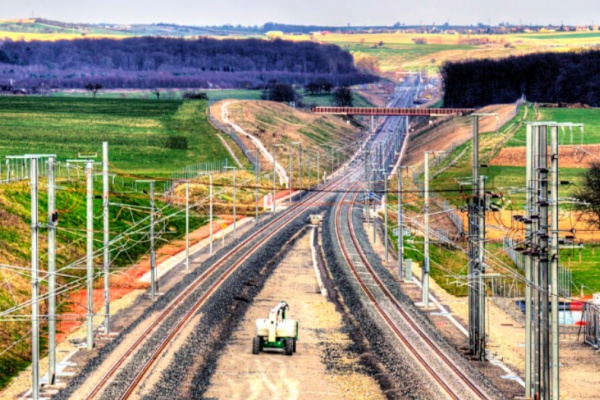The Chamber of Deputies has approved an amendment to the Line Act, which aims to speed up the implementation of a much wider range of construction projects than before. For strategically important energy and transport investments, the law will set binding deadlines of four years for the completion of all administrative procedures. Among other things, the amendment will also support the development of gas production facilities, including green hydrogen, with an output of over 1MWp.
According to Transport Minister Martin Kupka and Minister of Industry and Trade Jozef Síkela, the proposed legislative changes will eliminate unnecessary bureaucracy, speeding up approval processes for strategic investments and enabling a true restart of the Czech economy. The amendment is also welcomed by the Czech Chamber of Commerce, which, along with the Confederation of Industry and Transport, is a member of the Government Committee for Strategic Investments and a driving force behind the Czech Republic at the Crossroads initiative.
"We have carefully selected key areas that are essential for ensuring faster decarbonization and maintaining the energy security of our country. The amendment introduces clear and swift processes for approving new and modernized energy sources. This will help reduce bureaucracy and enable faster implementation of such projects. We are also speeding up rules for the construction of electronic communications infrastructure and permits for transmission, transportation, and distribution networks, applicable to electricity, gas, and heat," says Jozef Síkela, Minister of Industry and Trade, adding that the proposed changes will help return the Czech economy to its rightful place.
Among the changes brought by the Line Act amendment is the accelerated preparation of charging and refueling infrastructure. The preparation and permitting of refueling infrastructure will now be simplified and expedited in line with developments in so-called clean mobility, creating space for the development of alternative transportation (electric, hydrogen, LNG). The law also applies to the refueling infrastructure for charging stations for electric vehicles, hydrogen refueling stations, LNG, as well as the construction of connections to distribution networks.
The Line Act amendment will accelerate energy projects such as the completion of new blocks of nuclear power plants, the development of small modular reactors, and the use of European funds for investments in renewable energy sources and strengthening energy infrastructure.
It will also help speed up the approval processes for areas related to the production of modern products of strategic importance, such as the production of batteries for cars, chip manufacturing, secondary raw material processing, recycling, robotic manufacturing, hydrogen production and processing, and data centers.
In mining, it will help secure enough raw materials for highways and railways, such as stone, gravel, and sand. For battery production, lithium mining is key. In industry, the priority is to develop manufacturing capacities for 21st-century technologies.
"The name change better reflects the final scope of the law. It will help the Czech Republic complete the basic motorway network and begin the construction of high-speed rail lines. However, we urgently need to secure and accelerate a number of other key strategic investments that the Czech Republic needs to address long-standing infrastructure deficits and restart the economy," says Transport Minister Martin Kupka.
The amendment to the Line Act will simplify permitting processes, eliminating unnecessary delays (e.g., deadlines for issuing binding opinions or statements cannot be extended, and the review process for binding opinions can only be initiated within a limited period, etc.). For example, the appeals process will be abandoned.
The Senate and the President will now review the amendment to the Line Act. If they agree with the changes, it will take effect on January 1, 2024.
Source: mdcr.cz


